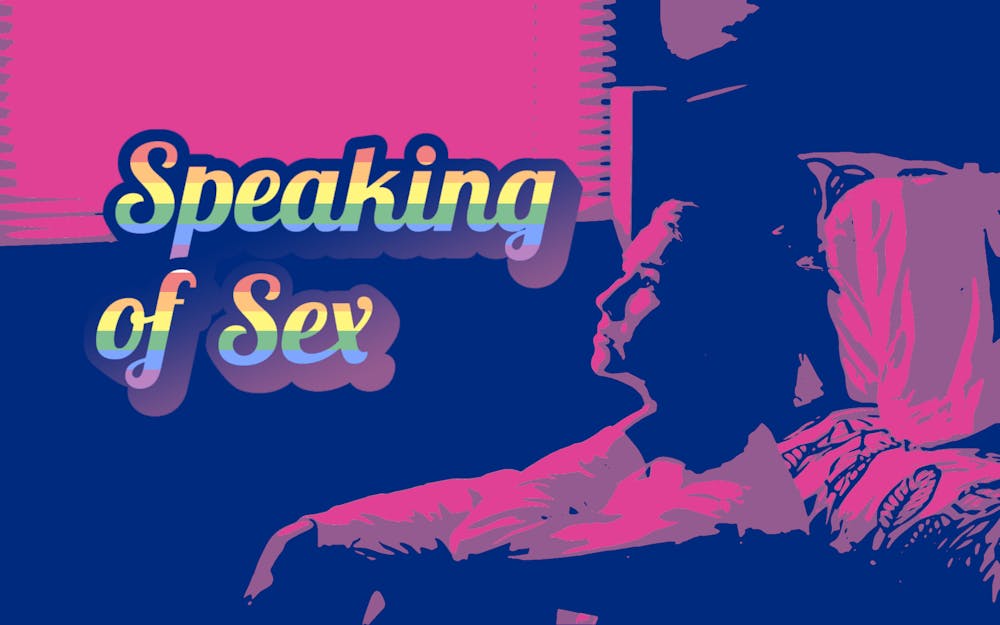How do you know if you’re gay or bi?
If you were like me at 12 years old, no amount of anxiously Googling “Am I gay?” or frantically taking quizzes that promise to reveal your true sexual orientation gave any insight into what your sense of sexual identity or lived experiences would be.
I turned to the internet for information because the messages I received in school or from popular culture about sexuality were not congruent with my thoughts and feelings. I felt I didn’t fit in either category I had been exposed to at the time — “gay” or “straight.”
So, if you’re asking yourself this question, you’re probably trying to describe your sexual identity to yourself and the people around you in a way that makes you feel comfortable.
Questioning or challenging your sexuality can feel both confusing and isolating, but take a breath. You’re not alone.
Traditional models of understanding sexuality tend to center around one aspect: our sexual orientation. This model says you can be attracted to the same sex and/or gender, the opposite sex and/or gender, or people of either.
These models are limiting because their language and definitions often assume gender and sex are binary. They don’t account for aspects of sexuality outside of gender, such as the different kinds of sex or sensations we like or the levels of physical or emotional attraction we experience with others.
It might be helpful to consider who you are attracted to in these ways.
Are you attracted to same-sex, different sex or intersex people? People who are androgynous, masculine or femme presenting? Are you attracted to people who are genderqueer, genderfluid, transgender and/or nonbinary? Simply people regardless of their gender presentation or sex?
If you’re afraid of claiming a specific identity because you’re unsure, then know you can also identify as gay, bisexual, questioning or otherwise without any experience or desire for physical intimacy.
Relationships require vulnerability and an understanding of how to be romantically or emotionally available with other people, and sometimes these feelings don’t align with our behavior or sexual attraction.
Genevieve Labe, a Ph.D. student and adjunct faculty member teaching human sexuality at the IU School of Public Health, said they don’t think there’s a clear answer to the reader’s question because the way people ascribe labels to themselves varies person-to-person.
“How I might feel or determine how I identify could be so different for someone else,” they said. “I think whatever feels right in the moment is good. My question back to you is why do we need that label?”
Labe said labels can help us make sense of the world, but it’s important for us to think about the trauma labels have inflicted on people in the queer community, whether it be lingering stereotypes or forcing ourselves to stick to labels once we’ve claimed them.
How we interpret ourselves is dependent on the tools we have available. Knowing this, we can accept our sexualities are subject to change as new information and experiences become available over the course of our lives.
For example, if you’re someone who has identified as gay but end up feeling attraction to someone of a different gender, you shouldn’t feel pressured to prohibit that based on a label, Labe said.
On the contrary, it’s also completely valid to want to identify yourself with a label that feels most affirming to you when you use it.
“Labels should not be boxes into which we feel we must squeeze ourselves, but rather tools with which to communicate and to begin conversations,” Robyn Ochs, bisexual activist and editor of “Getting Bi: Voices of Bisexuals Around the World and Recognize,” said on her website.
If you feel safe and comfortable confiding in someone close to you, opening up about these feelings might alleviate some pressure. Your sexuality is also yours to share on your own terms — when and with whoever you want to.
Overall, whatever feels comfortable, makes you feel good about yourself and gives you a sense of community is what is right. You’re always allowed to change and reevaluate your needs and desires if you feel your identity doesn’t suit you anymore.
Speaking of Sex will be an affirming, nonjudgmental space exploring a myriad of topics related to gender and sexuality such as bodily normalization, pleasure-focused sex, healthy boundaries, consent and alternative relationships. You can submit questions via email at speakingofsex@ids.com or anonymously in this form.
Editor’s note: Advice offered is intended for informational use and may not be applicable to everyone. This column is not intended to replace professional advice.
Peyton Jeffers (she/they) is a senior studying human development, family studies and human sexuality.






